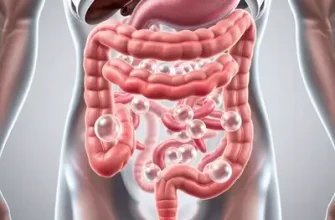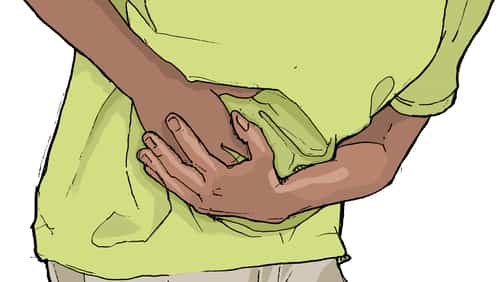Gas and bloating are common digestive complaints, but when they become painful, it’s important to identify the underlying causes to seek appropriate relief. This article explores the potential reasons behind painful gas and bloating, supported by expert advice, real cases, and actionable solutions.
Food Categories and Gas Potential
| Food Category | Gas Potential (%) |
|---|---|
| High-Fiber Vegetables | 85% |
| Legumes | 90% |
| Carbonated Drinks | 70% |
| Dairy Products | 80% |
| Processed Foods | 60% |
This chart highlights the gas potential of various food categories, with legumes and high-fiber vegetables rated highest. It offers a clear visual guide to help you identify and manage gas-triggering foods.
Understanding the Basics of Gas and Bloating
Gas naturally forms in your digestive system as a byproduct of breaking down food. Bloating, on the other hand, refers to the feeling of fullness or tightness in the abdomen. While occasional gas and bloating are normal, persistent or painful episodes may indicate an underlying issue.
Potential Causes of Painful Gas and Bloating
1. Dietary Choices
Certain foods are notorious for causing gas and bloating due to their high fiber or complex carbohydrate content. Examples include:
- Beans and lentils
- Broccoli, cabbage, and onions
- Carbonated beverages
Increased consumption of these foods can lead to excessive gas production, particularly when introduced suddenly into your diet. A 36-year-old woman from Chicago reported severe bloating after switching to a high-fiber diet without gradually increasing her intake.
2. Lactose Intolerance
Lactose intolerance is the inability to digest lactose, the sugar in milk and dairy products. Symptoms include abdominal pain, diarrhea, and excessive gas. A 28-year-old man from New York experienced painful gas until he reduced dairy intake and switched to lactose-free alternatives.
3. Irritable Bowel Syndrome (IBS)
IBS is a chronic condition affecting the large intestine and is characterized by abdominal pain, bloating, and changes in bowel habits. Research from the U.S. shows that IBS affects about 10-15% of adults, with women being more commonly diagnosed than men.
4. Swallowing Air
Unintentional swallowing of air (aerophagia) can lead to bloating and gas buildup. This can happen due to:
- Eating too quickly
- Drinking through straws
- Chewing gum or smoking
Reducing these habits can significantly alleviate symptoms.
5. Gut Microbiome Imbalance
An imbalance in the gut microbiome—the community of bacteria in your digestive tract—can cause excess gas. This imbalance may be triggered by antibiotics, poor diet, or stress.
6. Food Intolerances and Allergies
Apart from lactose, other food intolerances (e.g., gluten) can lead to gas and bloating. For instance, a 45-year-old man from California discovered that his symptoms improved after eliminating gluten due to celiac disease.
Symptoms of Food Intolerance
| Symptom | Occurrence (%) |
|---|---|
| Bloating | 85% |
| Abdominal Pain | 75% |
| Gas | 70% |
| Diarrhea | 60% |
| Nausea | 50% |
This chart showcases the most common symptoms of food intolerance, with bloating being the most prevalent at 85%. Understanding these patterns can help individuals identify and address their triggers effectively.
When to See a Doctor
Although gas and bloating are often benign, certain symptoms warrant medical attention, including:
- Persistent or severe abdominal pain
- Weight loss
- Blood in stool
- Frequent diarrhea or constipation
If these occur, consult a gastroenterologist for further evaluation.
Expert Advice: Tips for Managing Gas and Bloating
Reyus Mammadli, a health care advisor, recommends the following strategies:
- Gradually Increase Fiber: Introduce high-fiber foods slowly to allow your body to adjust. For instance, if adding beans to your diet, start with small portions, such as half a cup per meal, and gradually increase over a few weeks. Cooking beans thoroughly can also help reduce their gas-producing effects.
- Identify Trigger Foods: Keep a food diary to pinpoint and eliminate problem foods. For example, note down what you eat and when symptoms occur, then identify patterns. If broccoli triggers bloating, consider steaming it to make it easier to digest.
- Hydrate Properly: Drinking enough water aids digestion and prevents bloating. Aim for 8-10 glasses of water daily and avoid sugary drinks. Adding a slice of lemon or cucumber can make water more appealing and support digestion.
- Stay Active: Regular physical activity can improve digestion and reduce gas buildup. Simple activities like a 15-minute walk after meals or practicing light stretches such as child’s pose can alleviate discomfort. Consider yoga poses that focus on the abdomen, like wind-relieving pose, for targeted relief.
- Try Probiotics: Probiotic supplements may help restore gut balance, reducing gas and bloating. Look for strains like Bifidobacterium and Lactobacillus, which are known to support digestion. Fermented foods like yogurt, kefir, or sauerkraut can also be natural sources of probiotics.
Practical Table: Foods That Commonly Trigger Gas
| Food Type | Examples | Gas Potential |
|---|---|---|
| High-fiber vegetables | Broccoli, cauliflower, cabbage | High |
| Legumes | Lentils, black beans, chickpeas | High |
| Carbonated drinks | Soda, sparkling water | Moderate |
| Dairy | Milk, cheese, ice cream | High (for lactose intolerant individuals) |
| Processed foods | Packaged snacks, frozen meals | Moderate |
Editorial Advice
Painful gas and bloating can significantly impact quality of life, but understanding the causes and adopting healthy habits can bring relief. If symptoms persist despite dietary adjustments and lifestyle changes, consult a healthcare provider to rule out serious conditions. Proactively addressing your digestive health can lead to lasting comfort and well-being.
Fiber Intake Over Time
This chart illustrates the progressive increase in fiber intake over four weeks, demonstrating how gradual adjustments can help minimize digestive discomfort and improve tolerance.









